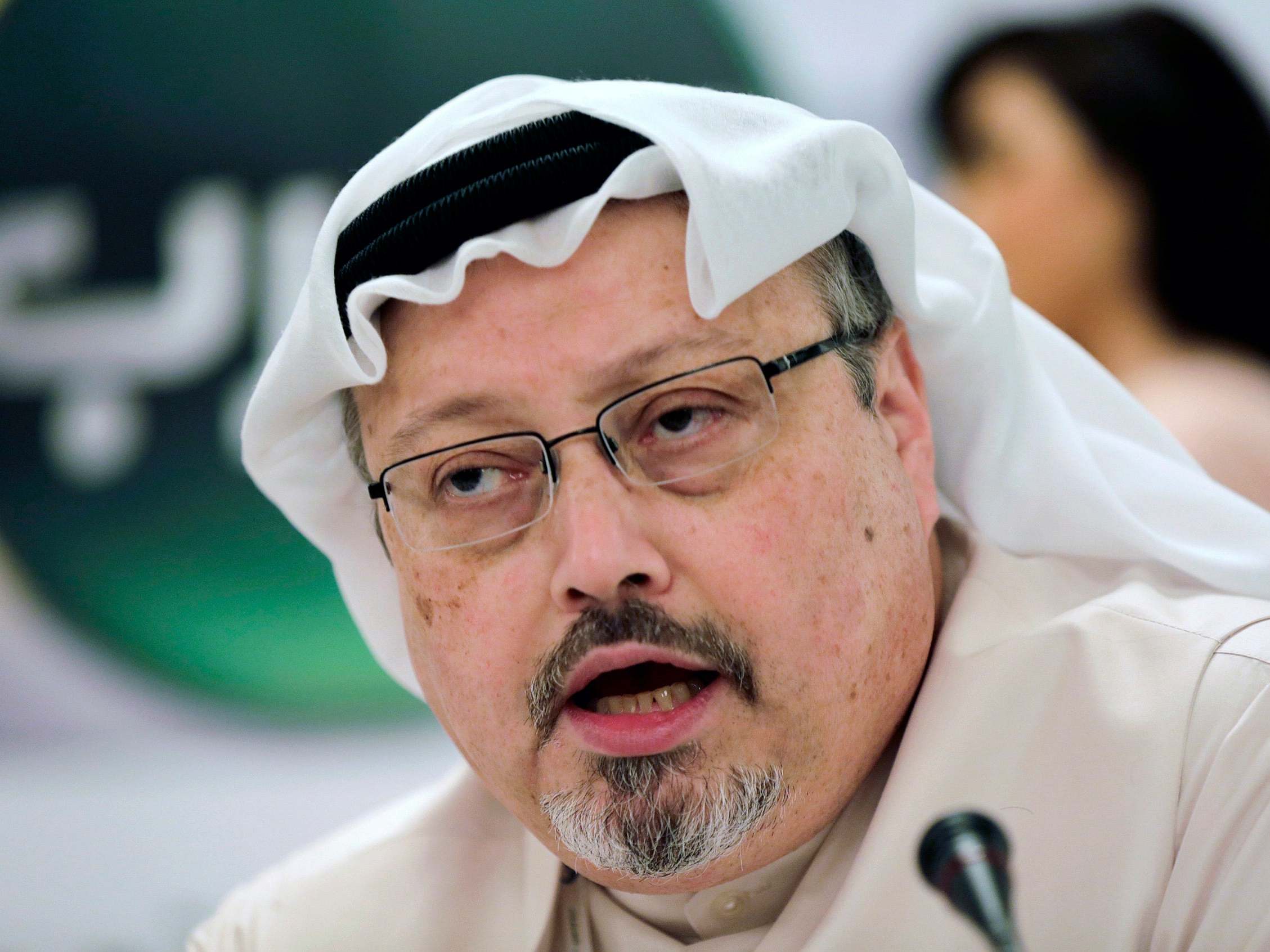Jamal Khashoggi: Saudi Arabia sentences five to death over killing of journalist
Two top officials exonerated. Unclear who the accused are in obscure proceedings clouded by doubts and secrecy

Your support helps us to tell the story
From reproductive rights to climate change to Big Tech, The Independent is on the ground when the story is developing. Whether it's investigating the financials of Elon Musk's pro-Trump PAC or producing our latest documentary, 'The A Word', which shines a light on the American women fighting for reproductive rights, we know how important it is to parse out the facts from the messaging.
At such a critical moment in US history, we need reporters on the ground. Your donation allows us to keep sending journalists to speak to both sides of the story.
The Independent is trusted by Americans across the entire political spectrum. And unlike many other quality news outlets, we choose not to lock Americans out of our reporting and analysis with paywalls. We believe quality journalism should be available to everyone, paid for by those who can afford it.
Your support makes all the difference.Saudi Arabia’s obscure judiciary, led by a prosecutor known above all for his fealty to the country’s powerful Crown Prince, claims it has sentenced five men to death for the kidnap, torture, murder and dismemberment of journalist Jamal Khashoggi.
Three others have been given jail terms totalling 24 years in relation to the murder of the Washington Post journalist at the Saudi consulate in Istanbul in 2018.
In a rare public statement about the case, a Saudi official said Khashoggi’s killers decided to murder the writer after their arrival in Istanbul.
“Our investigations show that there was no premeditation to kill at the beginning of the mission,” Shaalan al-Shaalan, a spokesman for the prosecutor, said in a press conference broadcast by Saudi regime mouthpiece al-Arabiya TV.
“The killing was in the spur of the moment, when the head of the negotiating team inspected the premises of the consulate and realised that it was impossible to move the victim to a safe place to resume interrogations, to resume negotiations. The head of the negotiating team and the perpetrators then discussed and agreed to kill the victim inside the consulate.”
Citing Saudi law, none of those convicted has yet been named, even though dissidents accused of national security offences are regularly named and smeared in Saudi media outlets. Under Saudi law, death sentences must be confirmed in appeal and upheld by a high court.
At least 10 officials, including two top-ranking officials involved in the killing of the 59-year-old Washington resident, were exonerated.
The public prosecutor’s office said Saud al-Qahtani, a high-profile Saudi royal adviser to Crown Prince Mohammed bin Salman, was investigated but released without charges.
The former deputy intelligence chief Ahmed Al-Asiri was also released by the Saudi authorities for “insufficient evidence”.
In Turkey, Yasin Aktay, a member of Turkey’s ruling party and a friend of Khashoggi, criticised the verdict, saying the Saudi court had failed to bring the real perpetrators to justice.
“The prosecutor sentenced five hitmen to death but did not touch those who were behind the five,” Aktay said.
Khashoggi’s son, Salah, wrote on Twitter that the family had “full confidence” in the Saudi judiciary.
The killing of Khashoggi, a critic of Prince Mohammed, caused a global uproar, though it ultimately failed to prevent western powers from selling Saudi Arabia advanced weapons and surveillance systems. Many of the global corporations that shunned oil-rich Saudi in the wake of the killing are already crawling back to the kingdom, looking for deals.
Saudi Arabia initially claimed it knew nothing about Khashoggi’s disappearance after he entered the consulate building to obtain some paperwork, but eventually admitted under a torrent of leaked surveillance footage and travel documents that a death squad close to the Crown Prince had flown to Istanbul to capture and murder the writer in what it claimed was an unauthorised rogue operation.
To date, there has been no full accounting of the chain of command by which some two dozen trained enforcers, a forensic pathologist and a body double dressed up to resemble Khashoggi, as well as subsequent clean-up teams, were dispatched from Riyadh to Istanbul.
Human rights advocates have condemned the trial of Khashoggi’s killers, which has been witnessed by only a handful of diplomats sworn to secrecy. Nine sessions of the trial were reportedly held. Agnes Callamard, the UN rapporteur investigating the killing, has yet to be be granted permission to visit Saudi Arabia.
In a series of tweets, Ms Callamard condemned the ruling as a “travesty”, noting that at no point did the trial even consider the involvement of the state.
“The execution of Jamal Khashoggi demanded an investigation into the chain of command to identify the masterminds, as well as those who incited, allowed or turned a blind eye to the murder, such as the Crown Prince,” she wrote. “This was not investigated. Bottom line: the hitmen are guilty, sentenced to death. The masterminds not only walk free, they have barely been touched by the investigation and the trial. That is the antithesis of justice. It is a mockery.”
Join our commenting forum
Join thought-provoking conversations, follow other Independent readers and see their replies
Comments